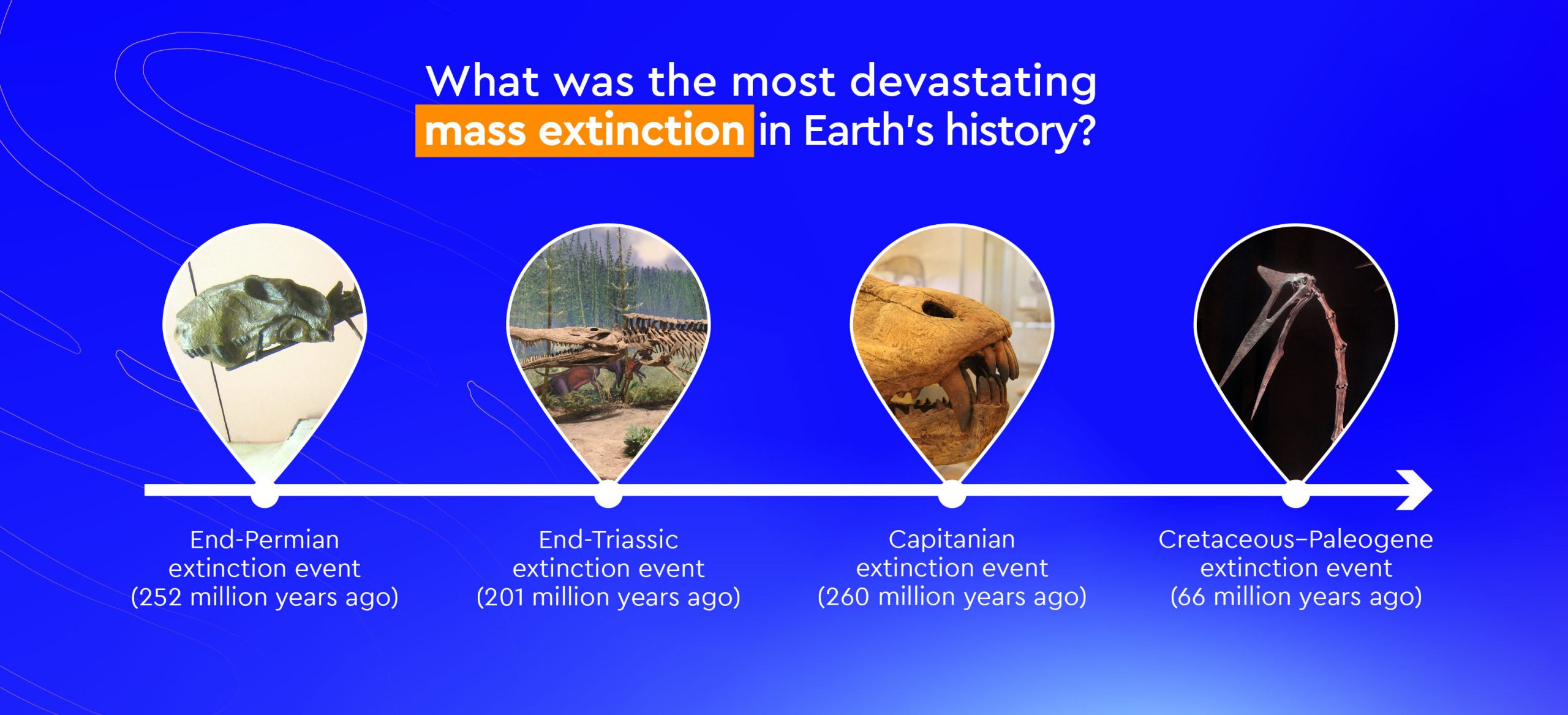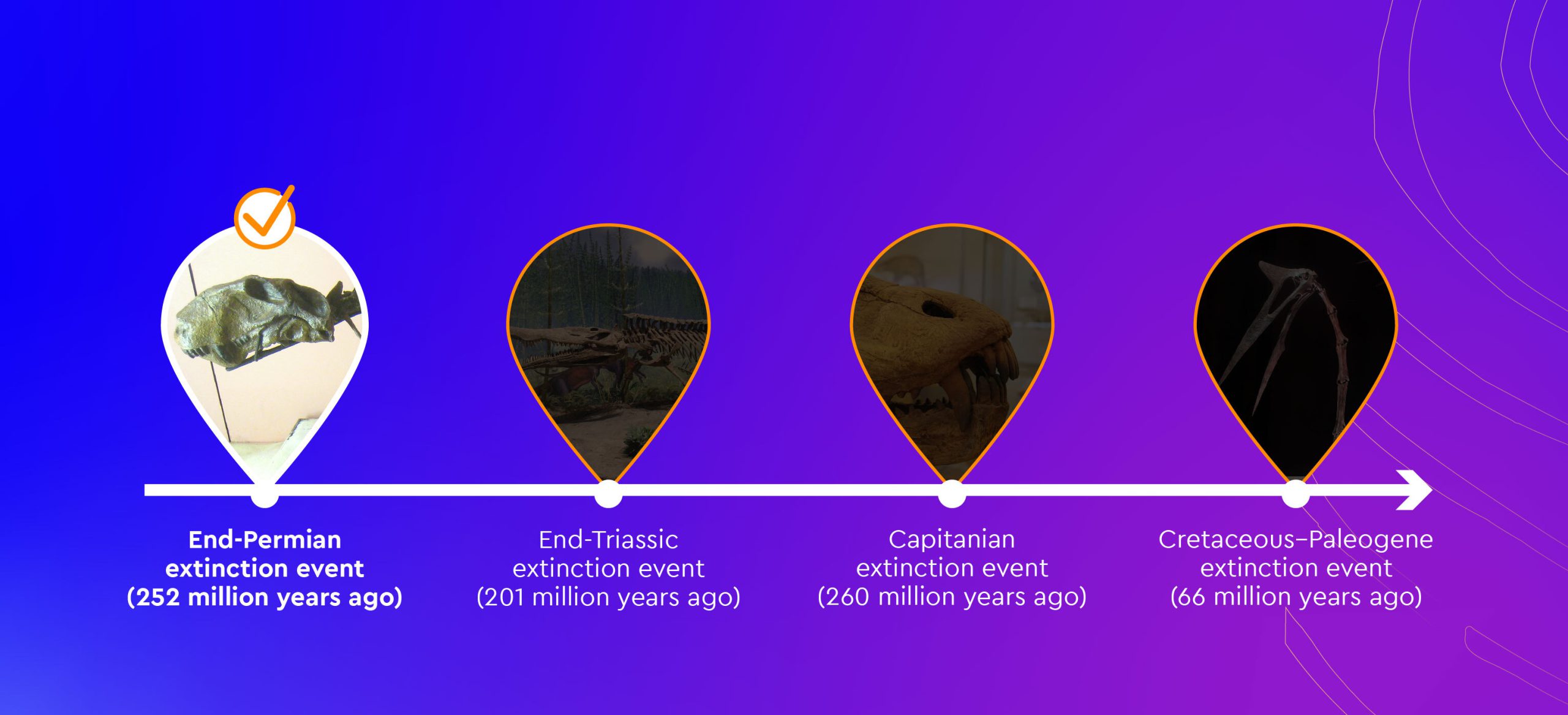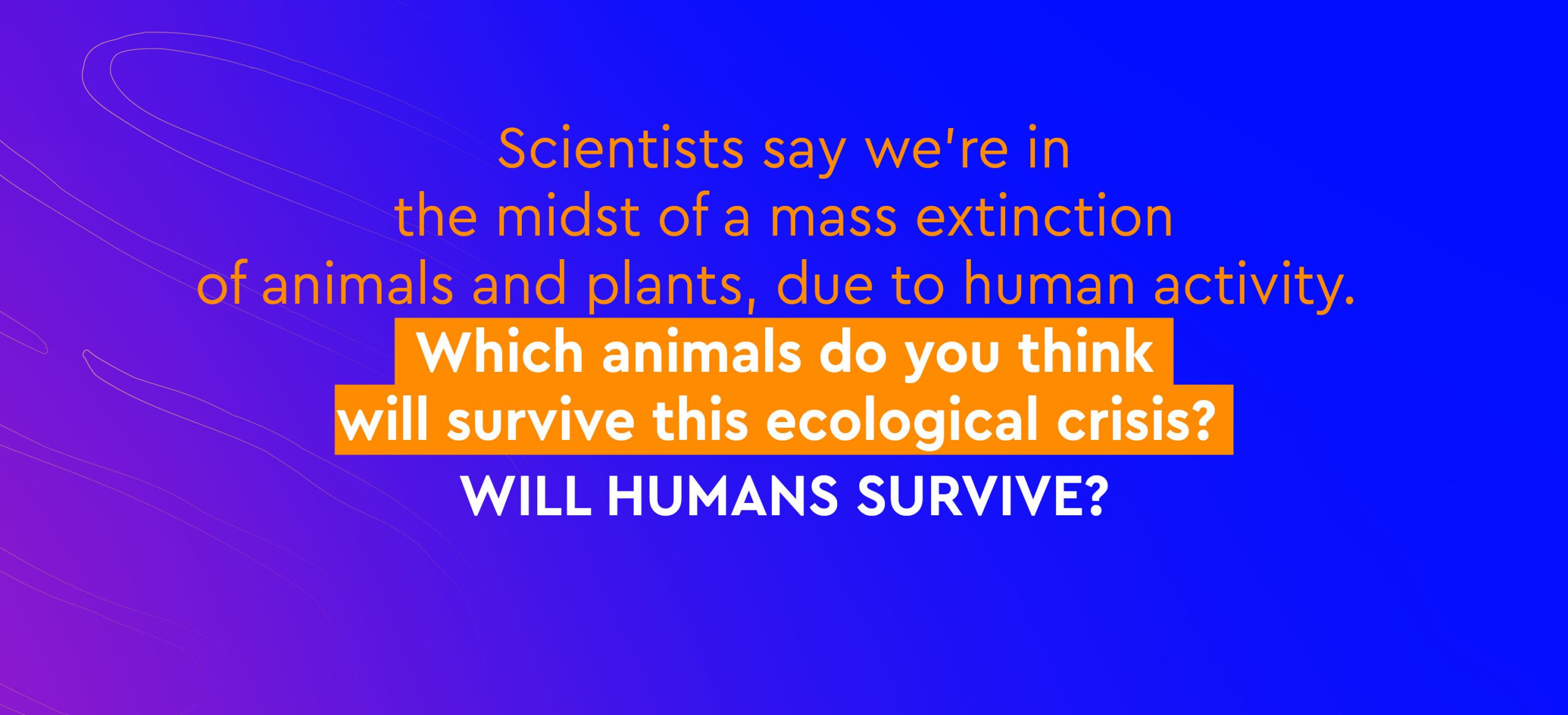

Will We Survive the Sixth Extinction?
Will We Survive the Sixth Extinction?
66 million years ago dinosaurs went extinct, and mammals took over the world. What would happen this time?
While the mass extinction event which occurred 66 million years ago is perhaps the most famous, thanks to the dinosaurs, the most severe extinction event we know of happened around 252 million years ago. Back then, more than 90 percent of Earth’s marine species and 75 percent of terrestrial species were eliminated. The event is known as the end-Permian extinction event, or The Great Dying. It is the most severe of the five major mass extinction events, and of the many other minor mass extinction events in our planet’s history.
The probable causes of those events vary and include climate change, geological events, and asteroid impacts. Ecosystem recovery may take thousands, and even millions, of years; however, fossil records show that mass extinctions lead to the formation of new ecologies, populated by new species, genera, families, orders and classes.
For instance, mammals gained their current dominance following the Cretaceous-Paleogene extinction event, which eradicated the dinosaurs. That event essentially laid the groundwork for the emergence of humans. Contemplate this: without such mass extinctions, our existence might not have been possible.
However, to fully grasp our present circumstances, lessons from past extinctions are indispensable. We now find ourselves in the midst of a sixth mass extinction, known as the Holocene or Anthropocene extinction. Scientific evidence suggests that biodiversity loss and species extinction rates are accelerating, largely due to human activities. While life on Earth may continue to adapt and evolve in the aftermath of this ongoing extinction, the flourishing of human life depends on our ability to stop climate change and counteract the degradation of biodiversity.
Group Activity
- Divide the group into several teams.
- Pick one of the questions from the list below and let each team discuss it and then present their thoughts to the group; Alternatively, assign each team with a different question, and when they present it to the group ask the remaining teams for their thoughts as well.
Questions
- Scientists say that we are in the midst of an ongoing sixth major mass extinction of animals and plants, due to human activity. Which animals do you think will survive this ecological crisis? Will humans survive?
- What do you think can be done to mitigate the ongoing Holocene or Anthropocene Extinction, which is being augmented by the climate crisis? Do you think you, as an individual, have a responsibility to do something about it?
To delve deeper, give each team an article from the list below (you can assign all of the articles or choose between them). Ask each team to summarize the article’s main argument(s) and present it to the group. Things to note and address: where was the article published (a magazine? A news website? An academic journal?) Who is the author (a columnist? An academic?). Each team can also turn the article’s core argument into a slogan (“AI deletes the I”, “The solution is evolution”, etc.). Ask each team to present their thoughts on the question to the group.
- Article 1: Individuals can’t solve the climate crisis. Governments need to step up. The Guardian, July 2019
- Article 2: Individual vs Collective: Are you Responsible for Fixing Climate Change?. Resilience, January 2018
- Article 3: Reducing Your Carbon Footprint Still Matters. Slate, October 2018
- Some people have a hard time believing the scientific consensus regarding the impact humanity has on the global climate. Why do you think that is?
- What can we learn from past extinctions about our current situation?






